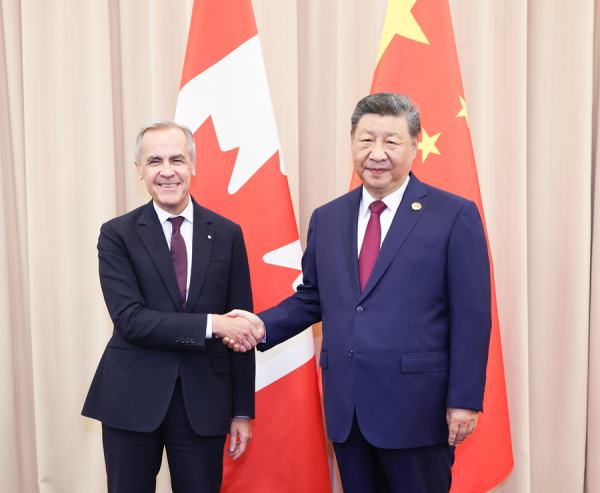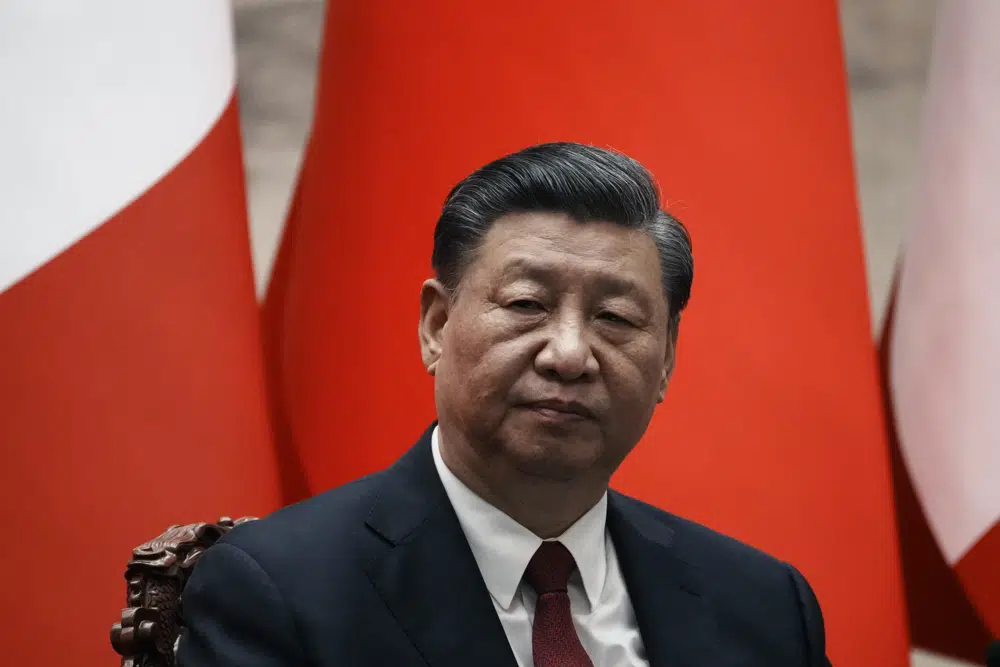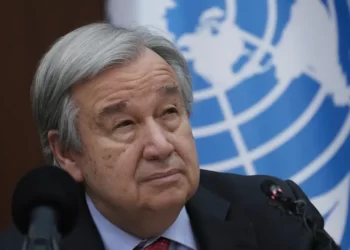China’s President, Xi Jinping and Canadian Prime, Minister Mark Carney have called for improving ties in a pragmatic and constructive manner.
The leaders took a step toward mending the long-fractured ties between their countries at a meeting in South Korea during an Asia-Pacific summit.
According to a Canadian statement, the leaders agreed that their meeting marked a turning point in the bilateral relationship.
The Canadian statement disclosed without specifying any date that Carney, who became Prime Minister in March, accepted an invitation from Xi to visit China.

Carney also later told reporters that he was “very pleased” with the outcome.
“We now have a turning point in the relationship, a turning point that creates opportunities for Canadian families, for Canadian businesses and Canadian workers, and also creates a path to address current issues.”
Mark Carney
Xi was quoted by an official report distributed by China’s state media as saying that relations are showing signs of recovery, thanks to the joint efforts of both sides.
“We are willing to work together with Canada to take this meeting as an opportunity to promote the return of bilateral relations to a healthy, stable and sustainable track as soon as possible.”
Xi Jinping
Xi emphasized that China and Canada should develop an objective and rational perception of one another, “view each other in the correct way, and advance the bilateral relations in light of the common and long-term interests of both countries.”
He added that the two sides should uphold mutual benefit and expand practical cooperation in economy, trade, and energy, among other fields. “They should increase people-to-people and cultural exchanges, support deeper mutual understanding between the two societies, and consolidate the public support for stronger ties,” the report said.
Also, Xi stated that the two sides should strengthen coordination and cooperation in the United Nations and other multilateral frameworks, bring about a more just and equitable global governance system, and uphold international fairness and justice.
Relations took a nosedive in late 2018 after Canadian authorities arrested a senior executive of Chinese tech giant Huawei as a part of its extradition agreement with the United States. China then arrested two Canadian citizens and charged then with espionage.
Ties didn’t improve much even after the 2021 release of the two Canadians, Michael Kovrig and Michael Spavor, and the Chinese executive, Meng Wenzhou, who is the daughter of Huawei’s founder.
More recently, relations have been shaken by Canada’s decision to levy a 100% tariff on electric vehicles from China in 2024 and a 25% tariff on steel and aluminum. China has offered to remove its import taxes on some Canadian products if Canada drops the EV tariff.Canada made the move last in tandem with the U.S.
China, Canada Move To Resolve Trade Issues

Additionally, the Canadian statement revealed that both leaders directed their officials to move quickly to resolve trade issues and irritants and discussed solutions for specific products such as EVs, canola and seafood.
Xi called for expanding “pragmatic” cooperation in areas such as the economy, trade and energy. Both Canada and China have been hit by tariffs imposed by US President Donald Trump.
Canadian canola producers, seafood exporters and pork farmers are dealing with steep Chinese tariffs in retaliation for the 100% tariff Canada imposed on Chinese electric vehicles, batteries and other goods last year.
China’s Ambassador in Ottawa recently said that Beijing would drop its levies if Ottawa cancels the EV tariffs.
The attempt at rapprochement comes as Carney looks to diversify Canada’s trade away from the United States and as Trump says he plans raise tariffs on imports of Canadian goods by an extra 10%. Canada’s free trade agreement with the US is up for review.
READ ALSO: Student Loan Trust Fund Commits to Seamless Rollout of Free Tertiary Education for PWDs























